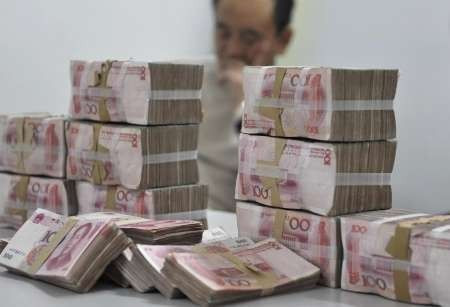Surging bank lending, not inflation to trigger monetary action in China

More monetary tightening is expected in China by the end of the year, as the surging loan growth raises more concerns than food price inflation, says a research report.
“Consumer price inflation rose more than expected last month, but it continues to be solely a food price problem. Of more concern is that loan growth has not slowed, despite strong signals from the government that it wants credit policy to tighten,” Capital Economics said in a report on Thursday.
Chinese bank lending in October stood at 587.7 billion yuan ($88.5 billion), up from 253 billion yuan ($38.1 billion) in October last year, the People's Bank of China (PBOC) said on Thursday.
Markets had expected bank lending to drop to 450 billion yuan ($67.8 billion) in October.
Despite the central bank’s effort to curb lending, the total lending in the first 10 months of the year reached about 6.89 trillion yuan ($1.03 trillion), against the official target of 7.5 trillion yuan ($1.1 trillion) in 2010.
“It would now require a severe contraction in credit growth for banks to stay within the annual lending quota,” said Capital Economics.
The Chinese central bank raised interest rates by 0.25 percent in October for the first time in three years to tame inflation.
Further, the central bank ordered banks on Wednesday to increase reserves in a move to curb lending.
According to the report, Wednesday' s move does not directly restrict Chinese banks' capacity to lend, as they still hold excess reserves with the central bank.
The rise in Chinese consumer price index to 4.4 percent in October from 3.6 percent in September is less of a problem, says the report.
Inflation was largely driven by food prices which rose 5.3 percent compared with the previous month. Non-food prices increased only 1.6 percent year-on-year.
“Inflation is in any case likely to ease in November,” said the report.
“Few in the People’s Bank will believe that monetary tightening can have much effect on vegetable prices. But the output gap has now closed and continued credit expansion at the recent pace could undermine efforts to keep a lid on property prices and inflation over the coming year,” the report added.
Capital Economics expects the reserve ratios to be raised again before the end of the year. It also expects an increase in benchmark interest rates too, if lending growth continues substantially.
The research firm also sees China reducing loan quota for 2011.
© Copyright IBTimes 2024. All rights reserved.


















